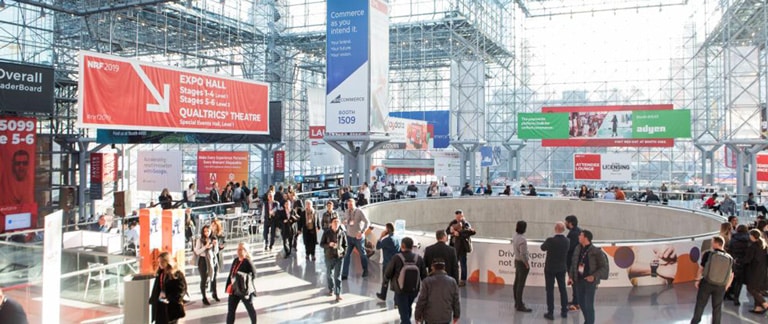Part 1: Why a Segment-Based Marketing Approach Is So Hard for Business to Quit
If you’ve spent any time around personalization, then you’ve probably encountered the three
great truths about it. The first is that every business needs it. The second is that every
marketing tool is keen to “help” you achieve it. And the third is that rarely, if ever, does it actually involve a real-time personalized experience for the individual shopper on the other
end.
Every business today understands the importance of competing on memorable experiences and is deploying some type of personalization in order to differentiate itself. However, as people spend more and more time online, they expect more from each digital interaction, and what passes for personalization is becoming increasingly insufficient.
NRF 2019
It was just two years ago in 2016, that headlines everywhere were talking about the demise of retail, but this year at the annual National Retail Federation 2019: Retail Big Show, which opened on Sunday, January 13th, NRF Chairman Christopher Baldwin, chairman, president and CEO of BJ’s Wholesale Club stating what we all know to be the more accurate truth, “retail never went away”, and that today the “industry is more healthy, vibrant, innovative and exciting than ever.”
Basic personalization gives way to individual experiences at scale; enhances both marketing and commerce investments for digital leaders
NRF Big Show 2019 – New York, NY – January 14, 2019 – RichRelevance, the global leader in Experience Personalization, today unveiled Hyper-Personalization with Deep Learning, the next tier of AI technology to drive digital growth, engagement, and revenue by staging compelling customer experiences across the commerce lifecycle. Hyper-Personalization helps define how digital business leaders will bridge marketing and commerce clouds to engage every customer as an individual – in real time, at global scale – and enhance the value of existing investments in both which focus on basic personalization.
“Delivering memorable experiences is the only way forward for brands and retailers to create competitive differentiation,” said Carl Theobald, President and CEO of RichRelevance. “Yet many companies struggle in this regard due to the fragmentation of roles and responsibilities across marketing and commerce. Digital leaders need to rethink personalization in light of emerging AI technologies which will in turn reframe organizational boundaries and better foster collaboration.”
Commerce changed in 2018 – and brands and consumers both came out winners.
It was a great holiday for retailers. A record holiday, in fact. Seasonal sales grew 5.1% to hit their highest level in 6 years, buoyed by 19% growth in digital purchases. As eMarketer principal analyst Andrew Lipsman presciently told CBS MoneyWatch last month: “Really, it’s the story of strength at brick-and-mortar retail and e-commerce.”
The future of B2B is consumerized and therefore personalized. At least, that’s the takeaway from industry leaders with whom I shared the stage for a keynote panel on digital transformation at the recent B2B Online conference.
As we discussed the internal challenges and external forces confronting the industry, a dominant theme emerged: Personalization is the only way to drive differentiation and growth for B2B companies who want to become the Amazon of their category … before Amazon is.
In the first blog post of this series, we discussed how AI promises to finally deliver true personalization – individualized experiences created dynamically and at scale. In this post, we will discuss how marketers can apply AI to every stage of the customer lifecycle – and share stories of brands who have done it successfully.
We’ve spent a lot of time this year talking about powering personalization for the new Experience Economy, and the need for companies to rethink their core value in a world where companies compete on the memorable customer experiences they provide, not the products they sell. Now, we can add a new number to the conversation: $800 billion.
Google’s Kiran Mani dropped this stat during her recent Shop.org session on How Machine Learning Can Help You Deliver Better Customer Experiences:








